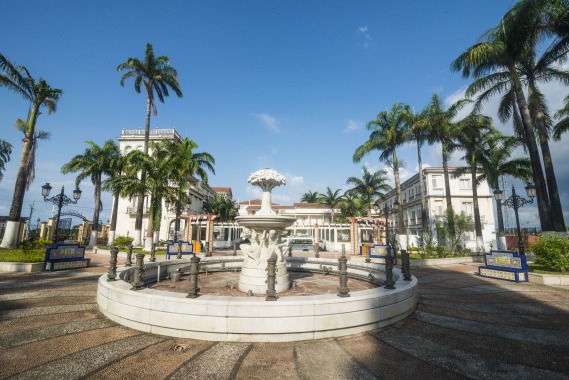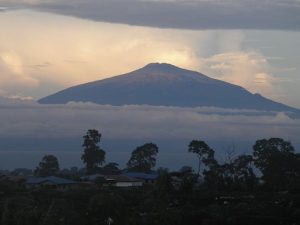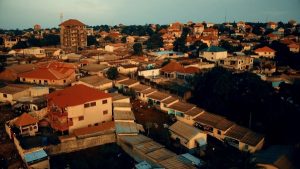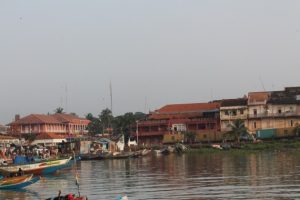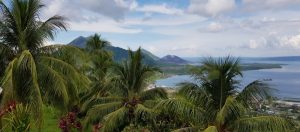Warnings & Dangers in Equatorial Guinea

OVERALL RISK : MEDIUM
In general, Equatorial Guinea is safe to travel, but you need to maintain common sense and be careful about your environment. Walking through the cities at night is unsafe. It is also better not to be on the streets alone. For active travel it is recommended to take a local guide.

TRANSPORT & TAXIS RISK : LOW
Public transport in Equatorial Guinea is not safe and tourists are advised to use their cars or brother taxis. Taxis are safe. It is recommended to use only licensed taxi services. Also make sure that the taximeter is included in the car.

PICKPOCKETS RISK : HIGH
Pickpockets are very common in Equatorial Guinea. Therefore, you need to keep track of your personal belongings and pockets. It is also worth monitoring your surroundings.

NATURAL DISASTERS RISK : LOW
Equatorial Guinea is periodically exposed to floods and strong winds, but this cannot lead to serious consequences. Usually the risk of natural disasters here is still not so high. Explore the weather before you visit here.

MUGGING RISK : HIGH
Armed robberies and attacks are quite common throughout the country, as are violent crimes. Therefore, you must be extremely careful and monitor your surroundings. It is recommended that you avoid walking around Malabo and Bath or driving at night to avoid peak attack times.

TERRORISM RISK : LOW
The risk of terrorist attacks in Equatorial Guinea is low. However, this does not mean that they can be excluded entirely. Monitor the situation in the country before your visit here, and be sure to take all measures to ensure your safety.

SCAMS RISK : HIGH
The risk of fraud in this country is quite high and diverse. Fraud can be connected with tourists - when you sell tickets for excursions, entrance tickets, and so on at inflated prices. Taxi drivers can also cheat if they travel without a taximeter. Be careful with government officials, as bribery is widespread, and they can insist on it in any situation.

WOMEN TRAVELERS RISK : MEDIUM
Women are not advised to travel alone on Equatorial Guinea. Better to be in the company, preferably men. Also, avoid any walks at night. Take a taxi or your car and do not attract unwanted attention.
How Safe Is Equatorial Guinea for Tourists?
Equatorial Guinea is a medium-security country.
The crime index ranges from very low to medium.
But the level of corruption and bribery is very high.
We can say that now this is the main problem in the country.
The country does not particularly care about the rights of citizens, especially European tourists.
Keep this in mind when traveling around Equatorial Guinea.
The climate here is tropical, so the weather is sweltering and humid.
Take care of appropriate clothing and carry drinking water just in case.
It is not recommended to photograph government buildings or anything of military or strategic value.
Locals, including children, usually dislike being shot by foreigners.
As a rule, it is not recommended to take a camera with you when walking around the city, as this can cause severe problems with the police.
To avoid unpleasant situations with military checkpoints on the roads, tourists should take a guide or an organized tour.
Independent travelers here raise many questions from local authorities.
Avoid any conversations related to politics.
Locals react sharply to criticism of the local government, and if you get involved in a dispute, it may end in a brawl.
Equatorial Guinea is generally a safe place to visit, especially in Malabo and Bath.
Do I Need a Visa to Visit Equatorial Guinea?
All visitors to Equatorial Guinea, unless they come from one of the visa-exempt countries mentioned below, must obtain a visa from one of the Equatorial Guinea diplomatic missions prior to arrival.
Which Currency Is Used in Equatorial Guinea?
The peseta (peseta guineana) was the currency of Equatorial Guinea from 1969 to 1975. It replaced the Spanish peseta at par shortly after gaining independence from Spain the prior year and was later replaced, again at par, by the ekwele.
How's the Weather like in Equatorial Guinea?
The best time to visit Equatorial Guinea is during the dry season from December to February. The climate is tropical all year round, but heavy rainfall should be expected most of the year.
What Do I Need to Know about Airports in Equatorial Guinea?
Malabo International Airport. Malabo Airport or Saint Isabel Airport, is an airport located at Punta Europa, Bioko Island, Equatorial Guinea. The airport is named after the capital, Malabo, approximately 9 kilometers to the east.
Should I Get Travel Insurance for My Travels?
Just like anywhere else, the travel insurance policy is a must when visiting a foreign country. Make sure you got it before starting your journey, the customs officer may ask for it.
What Are Some Things to Do in Equatorial Guinea?
Equatorial Guinea is a small country in Central Africa, divided into two parts, the mainland, and the islands.
A former Spanish colony, it borders Cameroon and Gabon.
This country is one of the largest oil-producing countries in Sub-Sahara, behind Angola and Nigeria.
There are many things to see on both Bioko island and the continent such as Piedra Bere, Oyala “city” and the Djibloho Hotel, Parque Nacional Altos de Nsork, Parque Nacional Monte Alen among other sights.
Equatorial Guinea also has many beaches, which is why beach tourist vacations are one of the country’s incomes.
Is the Water in Equatorial Guinea Safe to Drink?
Water quality in Equatorial Guinea is very poor in terms of access. In Equatorial Guinea, fewer households have access to safe water than in most other countries. You mustn’t drink tap water here.
Is Uber Safe in Equatorial Guinea?
Uber Taxi Service operates in Equatorial Guinea. However, there are some places where it can be difficult to find this service. Drivers are mostly young people, polite and professional.
